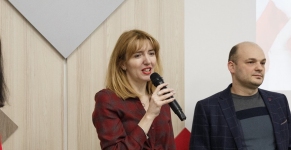
Soft skills are increasingly becoming a must-have for a successful career. Now it is not enough to just be a specialist in a particular professional field. Without interpersonal and communication skills, the ability to think creatively, it is difficult to imagine a modern successful person. What are soft-skills and how to develop them - the ILTI-Recruiting team understood.
The concept of soft and hard skills first appeared in the late 1950s in the United States to distinguish between professional skills that can be taught and clearly measured, and universal personal skills that may be needed in any field. Unfortunately, the training of the latter is still not part of the traditional education system, while the leading companies look for them in the resume and check them in interviews. A large-scale study by Project Oxygen from Google found that a good employee is distinguished by 8 basic skills, among which purely professional are only in last place, while soft skills occupy the first 7 lines.
Globalization and technologicalization are leading to a shift in emphasis from hard skills to soft skills, as the latter are much more difficult to acquire. The market is constantly changing, which requires universal competencies and sets a high bar for those who are looking for work or planning to move up the career ladder. According to the iCIMS resource, 94% of HR managers believe that an employee with stronger soft skills is more likely to move to a managerial position than an employee with more years of experience, but weaker soft skills. The top 3 skills that are considered the most valuable for a job candidate are: problem solving skills (62%), adaptability (49%) and time management (48%).
The Legal Talents Report 2018 highlighted the Top 5 skills that loyers need to develop in terms of automation: critical thinking, communication skills, self-improvement, creativity and business skills (so-called entrepreneurial skills). Traditional requirements for a disciplined good performer recede into the background, giving way to innovation and the ability to make independent decisions.
ILTI regularly employs graduates in leading companies in the creative industries, particularly in IT, where such soft skills are valued even higher. We know from hearsay that the main reason for the unsuccessful interview is the lack of a soft skills candidate for the vacancy. That is why the new program of soft skills "Anti-University" is designed to fill the gaps in formal education for students and young professionals who understand that for employers one diploma of basic education is not enough.


